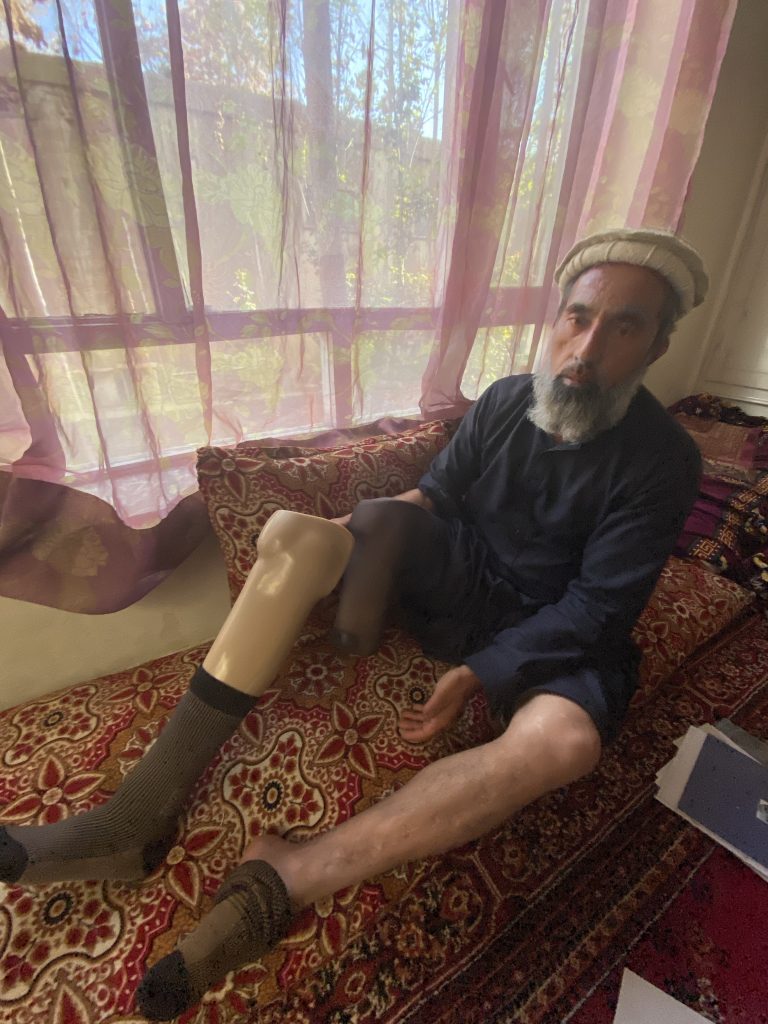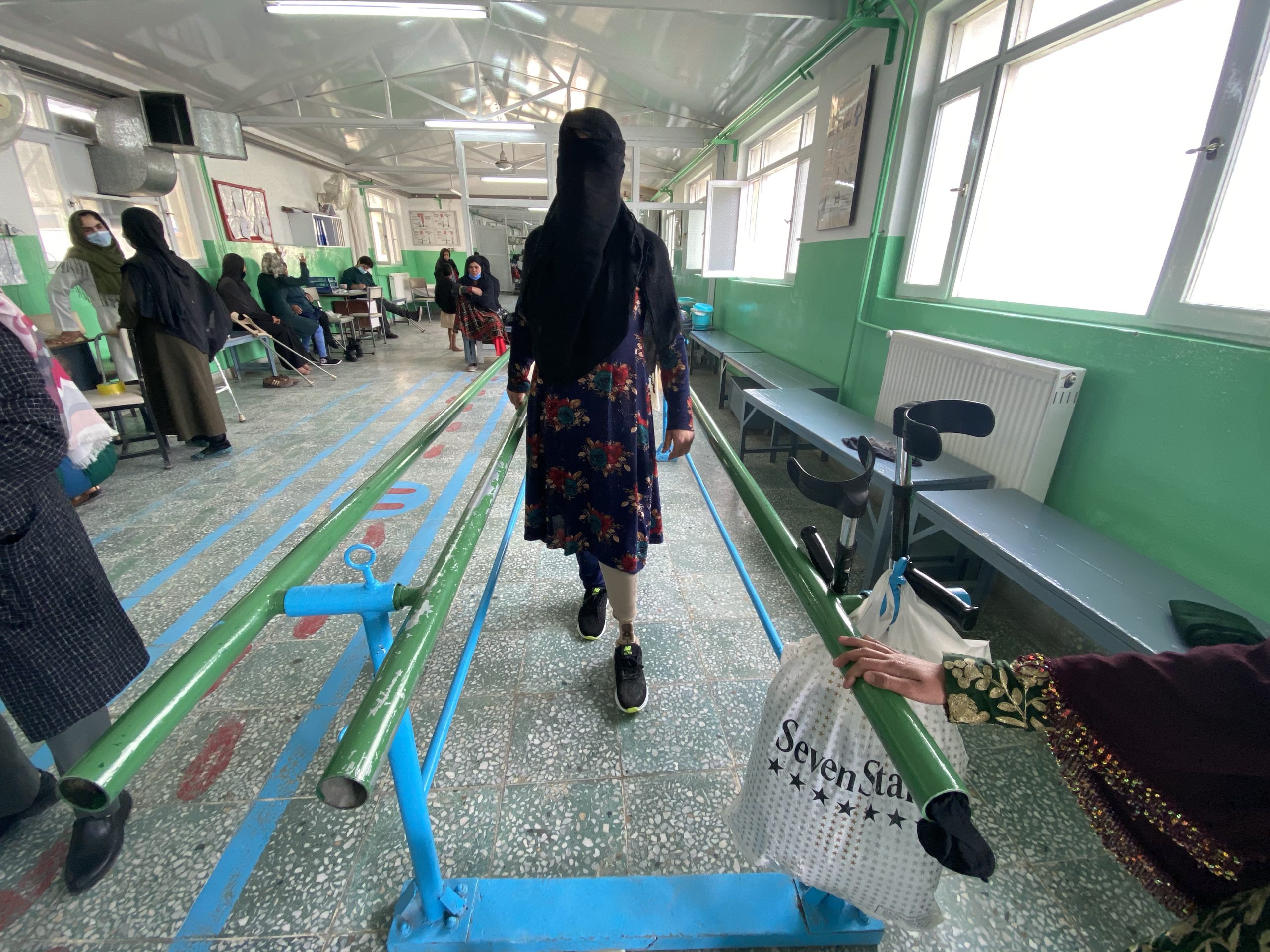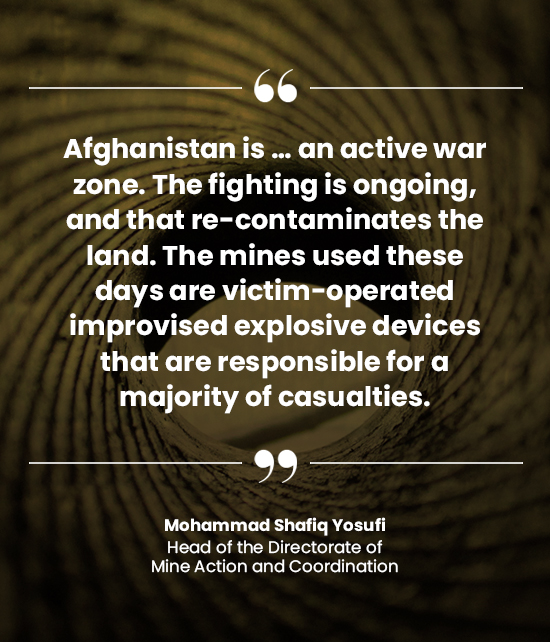Almost half a century ago, when the Russians marched on Afghanistan, they brought with them communism, but left behind landmines.
“There was no government agency back then who cared to remove these landmines that had claimed many lives in my village,” said Din Mohammad Khan, a 60-year-old resident of Pakhtia province, on the eastern edge of the country.
When he first started combing for explosives through his village, Khan had no training, no equipment, and no choice. “I decided to start doing that work voluntarily for the people of Afghanistan.”
“I learnt on my own,” Khan said. “The landmine was already there. When I picked it up from the ground, a fuse fell off. I understood that the fuse needs to be removed to diffuse it.” Eventually, he would come to dismantle nearly 3,000 landmines with his bare hands.
In 1989, Khan’s heroic work garnered the attention of international humanitarian group World Vision, and he was taken on as the Mines Supervisor of their Afghan Rehabilitation Program. A year later, he lost his leg to a landmine accident, leaving him with a lifetime of disability.
“After I finished diffusing a landmine, I got up to go back to my village when I stepped on another landmine that went off and took my leg with it,” recalls Khan. “When I heard the blast, I thought it had happened to someone else. But after the loud ringing of explosion subsided, I opened my eyes and realized it had happened to me.”
“I was in the hospital for 6 months and couldn’t move an inch. I was so depressed I thought of killing myself at least three times.”
Life for Khan has been a steep uphill climb ever since. He soon lost his income, and despite all his lifesaving work to clear landmines, he receives no support from the government. Today, he struggles to make ends meet for himself and his family of seven.
“The government gives 5,000 afghanis (US$64) to war victims. I have appealed to them several times for this financial assistance, but no one helps there. They all ask for a bribe that I cannot afford,” Khan says.

A legacy of war
Afghanistan remains one of the most heavily mined regions in the world. To this day, an estimated 125 civilians lose their lives – or, like Khan, are injured beyond recovery – to landmines every month.
In 1989, still reeling from a decade of war and conflict, millions of Afghan refugees made the journey home from Peshawar, a region near the Pakistan-Afghanistan border. What welcomed them were abandoned villages of ruined homes and a land contaminated with landmines and explosive remnants of war (ERWs).
Efforts to clear landmines in Afghanistan are carried out under the umbrella of the Mine Action Program of Afghanistan (MAPA), which was founded in 1989 with the help of the United Nations (UN) and other international and national partners. In 2002, the UN Mine Action Service (UNMAS) was entrusted with the coordination of the MAPA, in support of the government of Afghanistan, and established the UN Mine Action Center of Afghanistan (UNMACA), a wholly Afghan-staffed project. In June 2018, UNMAS and the Afghan Directorate for Mine Action Coordination (DMAC) successfully implemented a plan that helped to achieve full transition from the UN-led mine action program coordination to the national authority’s.
Over the years, the collective mine action in Afghanistan has claimed some impressive gains but has also met monumental setbacks.
“In terms of progress, 80 percent of legacy minefields are clear and the civilian casualties were reduced to only 1 percent,” says Mohammad Wakil Jamshidi, Deputy Program Manager and Chief of Operations of UNMAS.
Mohammad Shafiq Yosufi, director of the DMAC, adds that over 30 years, the demining efforts by non-government organizations have cleared mines from around 3,200 square kilometers of land. More than 20 million devices of different types – including ERWs and landmines – have been destroyed.
But the work continues to sprawl endlessly ahead of them. Under the Ottawa treaty, to which Afghanistan is a signatory, countries are given a maximum of 10 years to clear their territories of anti-personnel mines, Wakil explains.
Their first window for clearance was between 2003 and 2013. But the country, which has kept its ground rich with explosives, has since slipped from one armed conflict to the next. Coupled with lack of funding, Afghanistan had no hope of meeting its deadline. So, they requested an extension for another 10 years, moving the deadline back to 2023.
But the country’s security situation has only continued to deteriorate, and new areas are being contaminated by ERWs and anti-personnel explosives. At present, around 1,700 square kilometers of land are still considered contaminated. Despite years of dangerous clearing efforts, the contamination in Afghanistan has only gotten worse.
“Afghanistan is not a post-conflict country, it is an active war zone,” says Yosufi. “The fighting is ongoing, and that re-contaminates the land. The mines used these days are victim-operated improvised explosive devices that are responsible for a majority of casualties.”

Munisa (center), 20, also lost her leg to a landmine accident. With two young kids at home, no government support, and not much left in the bank, the incident made life even more difficult for her and her husband. But thanks to the Red Cross, an international humanitarian agency, her treatment and prosthesis are free of charge.
Remove the taboo
Twenty-year-old Munisa, from Baraki Barak, Logar Province in eastern Afghanistan, is one such casualty. “I was heading home with my brother-in-law when I unknowingly put my foot on the landmine, and it exploded,” she said. The incident took both her lower limbs and sent her to an emergency hospital in Kabul for a month.
“I have two children, aged 3 and 2 years, that I leave alone at home when I must come to the city for my treatment,” she says. “I leave them a piece of dry bread and lock them from outside.”
 Her husband, a daily wage earner, “earns less than US$2 a day,” reveals Munisa as she tries on her new prostheses. Like Khan, the volunteer deminer, the explosion took away her livelihood too. She hardly receives any assistance from the government, and instead has had to rely on aid.
Her husband, a daily wage earner, “earns less than US$2 a day,” reveals Munisa as she tries on her new prostheses. Like Khan, the volunteer deminer, the explosion took away her livelihood too. She hardly receives any assistance from the government, and instead has had to rely on aid.
“We are poor people and live in a village. It is difficult for us to survive,” she says. “My father gave me two gold rings as a wedding present that I had to sell to pay for my treatment. But thanks to the Red Cross [an international humanitarian organization], my artificial leg and treatment is free.”
According to Habib Khan Zazai, head of the Victim Assistance Department at DMAC, victims like Khan and Munisa are not the only casualties of landmines. Their families suffer, too. To help them through the process, DMAC has established its Victim Assistance Program. When accidents happen, the first step is to provide immediate medical attention to the victim. They are brought to the nearest hospital for urgent medical care until they are stable. If they lose a part of their body, they are given orthoses or prostheses; in some cases, they receive physical therapy, too.
Then comes the hard part. “There is also social counseling. When a person becomes disabled, the general behavior of society changes towards them because they are considered a burden,” Zazai explains. “We are working to remove the taboo from society and provide more opportunities, like jobs and vocational trainings.”
Victims also qualify for social support and they receive monthly cash aid and other forms of assistance from the Ministry of Martyrs and Disabled Affairs. For their part, the DMAC provides food and other supplies within two weeks of the incident.
“The victim assistance program is about social inclusion, economic integration, and advocacy,” Zazai says. Their objective is to create laws that will mold society into a more welcoming place for people with disabilities. In line with this, each ministry is mandated to have people with disabilities comprise at least 3 percent of its manpower.
Achieving this goal “should be done systematically,” he says. Toward this end, his ministry has developed the first draft of a law that has been presented to President Ashraf Ghani. “Once approved, we will have a task force in different ministries and … an action plan with clear goals to execute these policies,” he says. ●
This story was updated on June 24, 2021 to reflect more accurately the participation of other stakeholders in the mine-clearing efforts in Afghanistan.
Kanika Gupta is a writer based in New Delhi, India and works out of Kashmir and Afghanistan. She reports on culture and human interest stories from conflict regions.



















